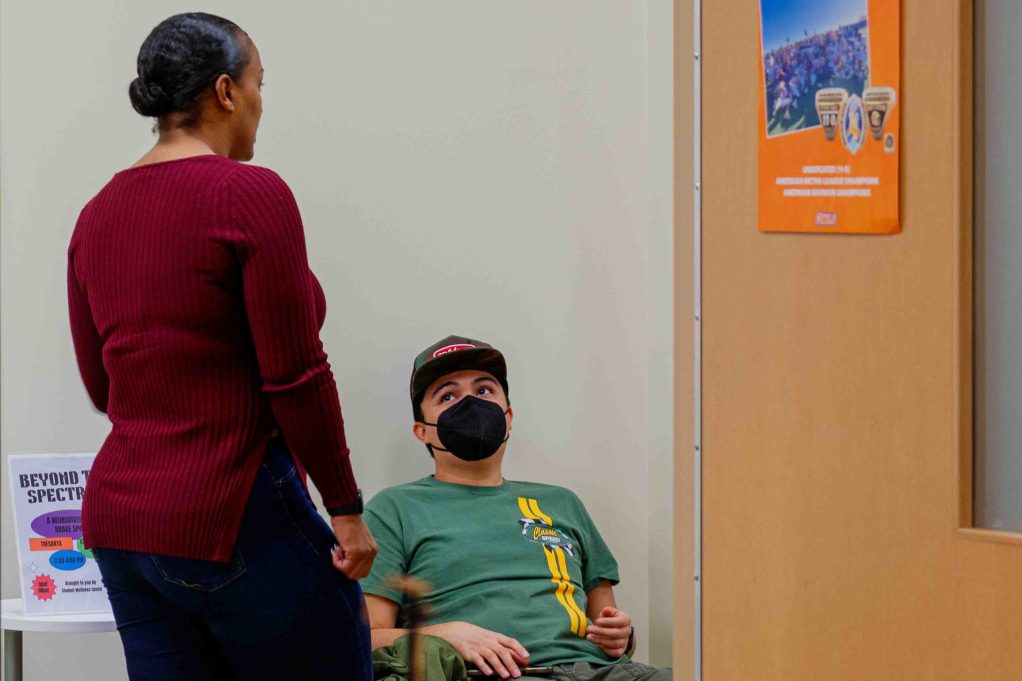When celebrating Women’s History Month, people often refer back to historical women figures that have paved the way for women today.
In higher education, women – like friends, librarians, mentors and professors – have created a history of breaking barriers for students.
Citrus professor Elisabeth Ritacca had her uncertainties about advocating for a women’s history class, especially because she was never exposed to feminist values.
“I never grew up around feminism,” Ritacca said. “My grandmother was a traditional woman, so she never even brought up the word feminism.”
Ritacca recounted as a young child that the women in her life had to rely on the men of the house.
Although she described her grandmother as a traditional woman, she admitted that her grandmother was much more secretive about her views.
“At the time women were only able to financially be independent by working as nurses,” she said.
She said she remembers that women were only able to have financial security if they had a career in nursing.
“I remember my grandmother told me to become a nurse, so I wouldn’t have to rely on a man,” she said. “I was like, ‘Who’s this conservative, Christian lady telling me all of this?’”
After many doubts about the class, Ritacca explained how grateful she is that the women’s history course was approved and popular among students.
“I thought nobody was going to join and now it is my only class that fills up quickly,” she said. “However, I wish more men would join the class.”
In her women’s history class, Ritacca goes in depth about the fundamentals of feminism and the marginalized women who were never acknowledged.
Ritacca said that this historic month did not start off as a whole month, but rather a week.
The National Women’s History Museum in Washington, D.C., said that the month first began as a celebration among women from Santa Rosa.
“The Education Task Force of the Sonoma County (California) Commission on the Status of Women planned and executed a ‘Women’s History Week’ celebration in 1978,” the museum said.
Now recognized as the National Women’s History Alliance, the group lobbied its way into “national recognition” in 1980.

That same year in February, Jimmy Carter was the first president to issue a Presidential Proclamation declaring the week of March 8, 1980, as National Women’s History Week.
As time went on, in 1987 Congress passed Public Law 100-9, which designated March as Women’s History Month.
Citrus librarian Terri Worthington reminisced about her late mother during this month.
“My mother had an amazing work ethic and an open heart,” Worthington said. “She was always fair and never judged anybody.”
In addition, Worthington recognizes the women that came before her like former Citrus library supervisor Lari Kirby.
“Lari Kirby was a wonderful boss,” she said.
On the other side of campus, Nadine Henley, supervisor of Mental Health Services, has been supporting students since the day she started working at Citrus.
Although days often look busy for her, she continues to strive to serve students and staff at the Student Wellness Center in the Student Services Building.

“It’s been great, but it’s been busy and today is no exception,” Henley said.
She mentioned the protest that happened on campus on March 17 triggered students to seek mentorship and services at the Student Wellness Center.
“I escorted a student, because she came in crying, understandably so,” Henley said.
On average, her days are busy especially when there is no one around to help. At times she has to take initiative of the whole center.
As a Black woman, Henley said she was surprised to receive recognition for herself during both Women’s History Month and Black History Month, which was February. Outside of Citrus walls, she is a social worker, and March is also considered Social Work Awareness Month.
“I feel double celebrated and I almost feel guilty, because last month was Black History Month,” she said. “I’m acting up, I want all the months.”
Henley said she gets her generosity and wit from her mother, but she mentioned that her daughter, Henley Rogers, 9, has imprinted unforgettable advice into her.
“She’s 9, but boy oh boy oh boy, I apparently have raised quite a little strong leader,” she said.
Her daughter has broken barriers at such a young age and teaches her mom the importance of stability.
“She’s very emotionally attuned and I really look up to that because sometimes I am like, ‘Dang. I didn’t have any of that at the time,’” Henley said.
Inspired by her daughter, Nadine Henely encourages others to continue to practice authenticity.
“If you’re not your authentic self, it doesn’t make space for students and other people to be their authentic selves,” she said.
If there is any trouble happening on campus or life is becoming unbearably stressed, her doors are always open for any mental health services or if anyone who just needs a space to recenter.
Her office is in SS 147.
These women have not only excelled in their fields, but continue to strive to serve their community. This recognition is a necessary step for creating new opportunities for other women to follow in their footsteps.
Citrus College continues to honor and recognize their accomplishments not only because it is deserved, but also because it opens up opportunities and resources for women to thrive in the community.
Let the community honor the legacies of the women of Citrus College, the women who came before, the women who present and the women in the future and continue to work together to tackle the barriers to come.


